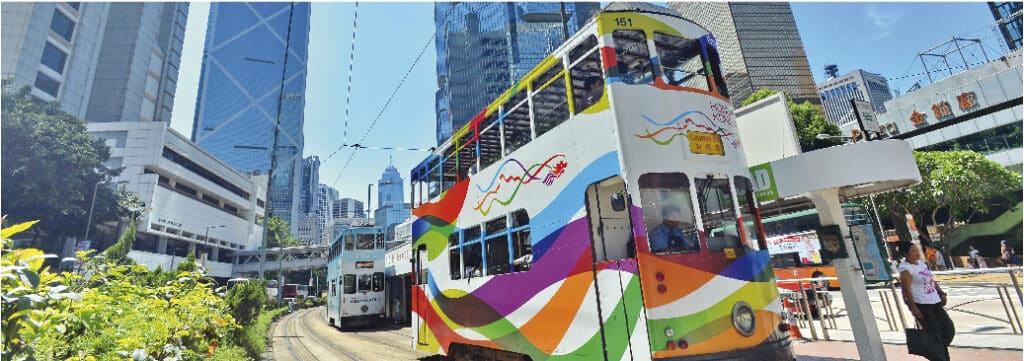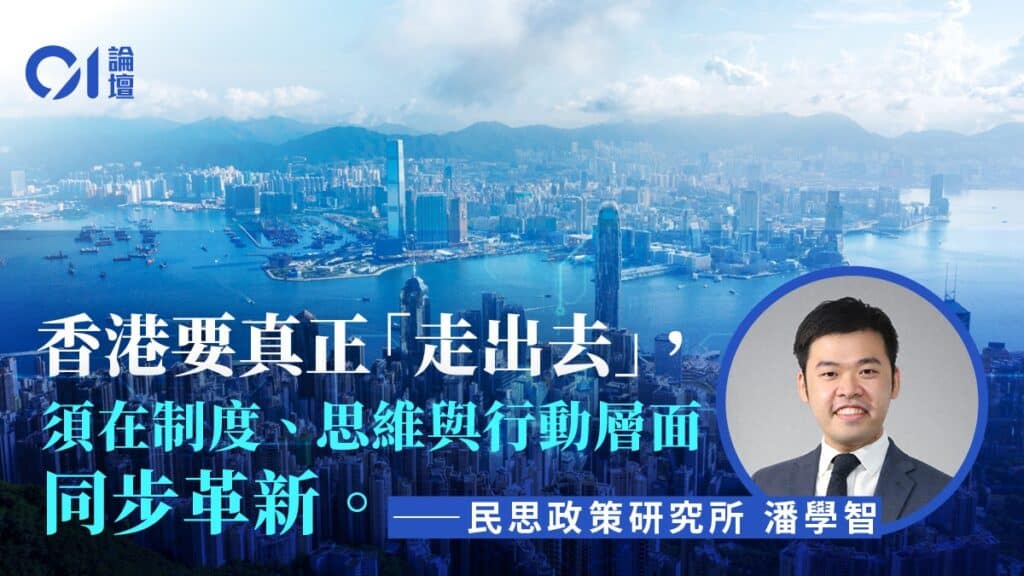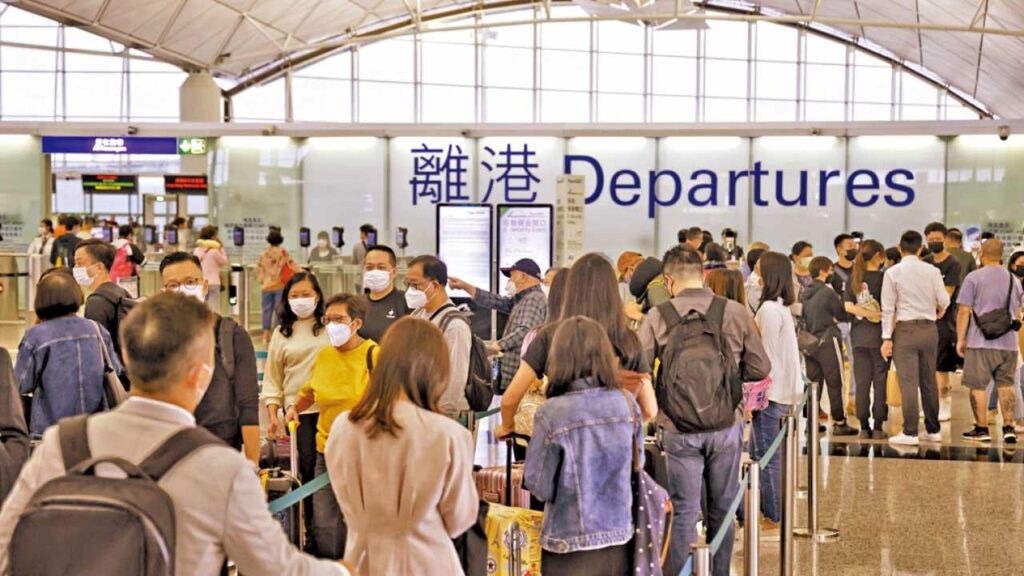The political disputes in recent years have brought severe challenges to Hong Kong, causing some Hong Kong people to lose confidence in their prospects. Immigration overseas has once again become a topic of discussion among Hong Kong people. "One country, two systems" is an unprecedented new attempt. The implementation process will have twists and turns, and it is necessary to gradually enrich the connotation and improve the implementation model during the exploration process. At the end of 2016, Wang Guangya, director of the Hong Kong and Macao Affairs Office of the State Council, was interviewed and affirmed that Hong Kong still plays an indispensable role for the central government in opening up to the outside world. As long as we face the difficulties and make preparations in line with the national plan, Hong Kong will continue to play a pivotal role in the country's overall development layout.
Hong Kong is an international financial center and Asia's world city, with a well-established service industry system in finance, professions, infrastructure, transportation, information technology and environmental protection. More and more mainland enterprises are choosing Hong Kong as a springboard to look for investment opportunities, allowing Hong Kong to fully play its role as a "super connector" and become the primary channel for the country's "going global" strategy. Figures from the Hong Kong Census and Statistics Department show that in 2016, there were 1,123 mainland companies with companies in Hong Kong, an increase of nearly 57% compared with 717 ten years ago.
Low tax rates, free flow of capital and information, sound legal system and abundant productivity are all advantages of Hong Kong in attracting two-way flow of foreign direct investment. According to the World Investment Report 2016 of the United Nations Conference on Trade and Development, in 2015, Hong Kong’s foreign direct investment inflows were US$175 billion, ranking second in the world. In the same year, Hong Kong’s foreign direct investment outflows were US$55 billion, ranking first in the world. 9th in the world. From Hong Kong's perspective, the mainland is Hong Kong's second largest source of investment, accounting for 26.5%, and is also the second largest investment destination, accounting for 39.6%. From the mainland's perspective, Hong Kong has always been the mainland's largest source of investment and investment destination. In 2016, Hong Kong accounted for 69.2% of mainland China’s outward direct investment. In 2015, Hong Kong accounted for 61.6% of mainland outward direct investment. Hong Kong is an indispensable international platform for the mainland to absorb foreign capital and conduct outbound investment.
Hong Kong's capitalist system operates maturely and has always been a bridge for China's economy to integrate into the world economy. As early as the early days of reform and opening up, Hong Kong has been a window for China to contact the world economy, bringing funds, talents, information and management concepts to China's modernization. After China joined the WTO, it gradually accepted the norms of international standards. Hong Kong can provide China with a training base to adapt to the market economy and provide a template for the transformation of the functions of the mainland governments at all levels, allowing the mainland government to adjust its role in leading the market in the past. From active participants, Transition to become a neutral arbiter.
The China Securities Regulatory Commission tried out the circuit breaker mechanism in January 2016. Unfortunately, it failed to achieve its original intention of avoiding large market fluctuations and was suspended after a few days of operation. The Shanghai and Shenzhen Stock Exchanges have a huge market capitalization, but their operations are still immature, supervision still needs to be strengthened, and opportunities and risks coexist. The strengths of Hong Kong's financial industry can complement the shortcomings of the mainland stock market. Relying on Hong Kong's mature regulatory and operational systems, it can enhance the professionalism and scientific level of the mainland market, master the rules of the world's capital markets, and maintain market stability.
The "13th Five-Year Plan" proposes five major development concepts of "innovation, coordination, green, openness and sharing". Hong Kong has three major international financial, shipping and trade center positions, and is particularly irreplaceable in the country's development of an open economy. Arrangements such as "Shanghai-Hong Kong Stock Connect", "Shenzhen-Hong Kong Stock Connect" and "Mutual Recognition of Funds" connect the financial systems of Hong Kong and the Mainland, further strengthening Hong Kong's competitiveness as a global offshore RMB business hub and an international asset management center. Hong Kong also established the "Belt and Road" Steering Committee and the Infrastructure Financing Promotion Office in 2016 to explore opportunities under the "Belt and Road" and help the mainland rise in the global value chain.
The country pursues an "open" development concept and hopes to actively participate in global economic governance. Relying on its legal advantages, Hong Kong is developing in the direction of building an international legal and dispute resolution service center in the Asia-Pacific region, demonstrating China's determination to fulfill its international responsibilities and obligations. China has established 11 free trade zones and is working hard to find a feasible path that is both in line with its national conditions and in line with international economic and trade rules. Hong Kong is the gateway to the Pearl River Delta region’s opening up to the outside world. Strengthening cooperation with the Guangdong Free Trade Zone in the liberalization of trade in services in the future will be of great reference value for China’s ambition to transform from a follower of international economic and trade rules to a maker. Hong Kong is full of opportunities and challenges. In the future, Hong Kong will still need to rely on the motherland, face the world, make full use of its own advantages to promote the "going global" strategy, help the country adapt to the rules of the world economy, and continue to play an active role in opening up and development. As Director Wang Guangya said: "Hong Kong needs the country, and the country needs Hong Kong." In the precarious and turbulent times, achieving mutual benefit, restoring confidence, and forging ahead are the long-term guarantee for Hong Kong to maintain prosperity and stability.
Du Julan Co-Director of Shanghai-Hong Kong Development Joint Research Institute
Pan Xuezhi Research Assistant, Shanghai-Hong Kong Development Joint Research Institute



